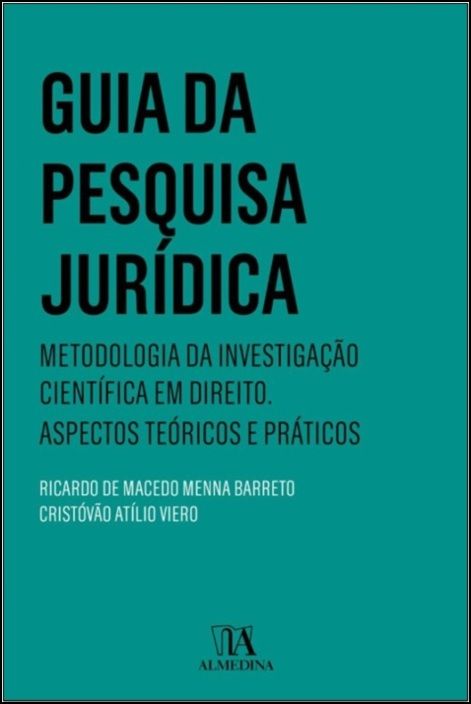
 Guia da pesquisa jurídica
de
Ricardo de Macedo Menna Barreto, Cristóvão Atílio Viero
Este livro apresenta, de modo gradual e objetivo, os passos basilares e os caminhos da investigação científica em Direito. Reconhecendo e respeitando a complexidade da pesquisa jurídica, os autores pretendem avivar a investigação em Direito, confiando que os aspetos centrais do ato de conhecer, ao menos o classicamente concebido enquanto conhecimento científico aplicado ao Direito, revelem-se ao leitor. Este Guia da Pesquisa Jurídica visa, para tanto, fornecer as bases teórico-metodológicas necessárias para o desenvolvimento de projetos de pesquisa e de diferentes tipos de trabalho de investigação, tais como artigos científicos, dissertações de mestrado e teses de doutoramento em Direito
Guia da pesquisa jurídica
de
Ricardo de Macedo Menna Barreto, Cristóvão Atílio Viero
Este livro apresenta, de modo gradual e objetivo, os passos basilares e os caminhos da investigação científica em Direito. Reconhecendo e respeitando a complexidade da pesquisa jurídica, os autores pretendem avivar a investigação em Direito, confiando que os aspetos centrais do ato de conhecer, ao menos o classicamente concebido enquanto conhecimento científico aplicado ao Direito, revelem-se ao leitor. Este Guia da Pesquisa Jurídica visa, para tanto, fornecer as bases teórico-metodológicas necessárias para o desenvolvimento de projetos de pesquisa e de diferentes tipos de trabalho de investigação, tais como artigos científicos, dissertações de mestrado e teses de doutoramento em Direito
 Research Methods in Law
de
Dawn Watkins (Editor); Mandy Burton (Editor)
Explaining in clear terms some of the main methodological approaches to legal research, the chapters in this edited collection are written by specialists in their fields, researching in a variety of jurisdictions. Covering a range of topics from Feminist Approaches to Law and Economics, each contributor addresses the topic of 'lay decision makers in the legal system' from their particular methodological perspective, explaining how they would approach the issue and discussing the suitability of their particular method. This focus on one main topic allows the reader to draw comparisons between methods with relative ease. The broad range of contributors makes Research Methods in Law well suited to an international audience, and it is ideal reading for PhD students in law, undergraduate dissertation students in law, LL.M Research students and early year researchers.
Research Methods in Law
de
Dawn Watkins (Editor); Mandy Burton (Editor)
Explaining in clear terms some of the main methodological approaches to legal research, the chapters in this edited collection are written by specialists in their fields, researching in a variety of jurisdictions. Covering a range of topics from Feminist Approaches to Law and Economics, each contributor addresses the topic of 'lay decision makers in the legal system' from their particular methodological perspective, explaining how they would approach the issue and discussing the suitability of their particular method. This focus on one main topic allows the reader to draw comparisons between methods with relative ease. The broad range of contributors makes Research Methods in Law well suited to an international audience, and it is ideal reading for PhD students in law, undergraduate dissertation students in law, LL.M Research students and early year researchers.
Bibliografia ainda não disponível